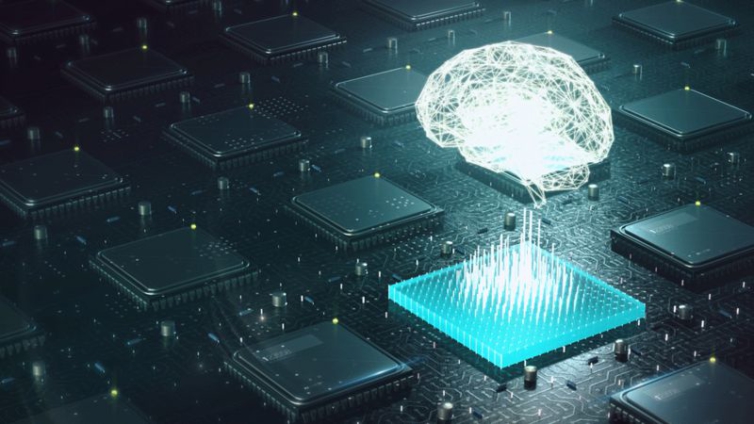Elon Musk is due to demonstrate a working brain-to-machine interface as part of his ambitious plans to give people superhuman powers.
His brain-hacking company, Neuralink, applied to start human trials last year.
But Friday's demonstration will involve a robot and "neurons firing in real-time", a series of tweets reveals.
The interface could allow people with neurological conditions to control phones or computers with their mind.
But the long-term ambition is to usher in an age of what Mr Musk calls "superhuman cognition".
People need to merge with artificial intelligence, he says, in part to avoid a scenario where AI becomes so powerful it destroys the human race.
Founded in 2017, Neuralink has worked hard to recruit scientists, something Mr Musk was still advertising for on Twitter last month.
The device the company is developing consists of a tiny probe containing more than 3,000 electrodes attached to flexible threads thinner than a human hair, which can monitor the activity of 1,000 brain neurons.
In its last update, more than a year ago, the company said it had carried out tests on a monkey that had been able to control a computer with its brain.
It has also built a "neurosurgical robot" that it says can insert 192 electrodes into the brain every minute.
University of Pittsburgh assistant professor of physical medicine and rehabilitation Jennifer Collinger described what Mr Musk was trying to do as "truly disruptive technology in a difficult space of medical technology".
"Neuralink has significant resources and critically a team of scientists, engineers and clinicians working towards a common goal, which gives them a great chance of success," she said.
But she added: "Even with these resources, medical-device development takes time and safety needs to be a top priority, so I suspect the process may take longer than they have stated as their goals."
Ari Benjamin, at the University of Pennsylvania's Kording Lab, told BBC News the real stumbling block for the technology could be the sheer complexity of the human brain.
"Once they have the recordings, Neuralink will need to decode them and will someday hit the barrier that is our lack of basic understanding of how the brain works, no matter how many neurons they record from.
"Decoding goals and movement plans is hard when you don't understand the neural code in which those things are communicated."
Mr Musk's companies SpaceX and Tesla have captured the public imagination with his attempts to drive progress in spaceflight and electric vehicles respectively.
But both also demonstrate the entrepreneur's habit of making bold declarations about projects that end up taking much longer to complete than planned.
Latest Stories
-
Boost for education as government commissions 80 projects
10 mins -
NAPO commissions library to honour Atta-Mills’ memory
21 mins -
OmniBSIC Bank champions health and wellness with thriving community walk
23 mins -
Kora Wearables unveils Neo: The Ultimate Smartwatch for Ghana’s tech-savvy and health-conscious users
27 mins -
NDC supports Dampare’s ‘no guns at polling stations’ directive
30 mins -
Police officer interdicted after video of assault goes viral
47 mins -
KNUST’s Prof. Reginald Annan named first African recipient of World Cancer Research Fund
48 mins -
George Twum-Barimah-Adu pledges inclusive cabinet with Minority and Majority leaders
2 hours -
Labourer jailed 5 years for inflicting cutlass wounds on businessman
2 hours -
Parliament urged to fast-track passage of Road Traffic Amendment Bill
2 hours -
Mr Daniel Kofi Asante aka Electrician
2 hours -
Minerals Commission, Solidaridad unveils forum to tackle child labour in mining sector
2 hours -
Election 2024: Engagement with security services productive – NDC
2 hours -
Retain NPP for the good of Ghana – Rebecca Akufo-Addo
2 hours -
‘Let’s work together to improve sanitation, promote health outcome’ – Sector Minister urges
2 hours

